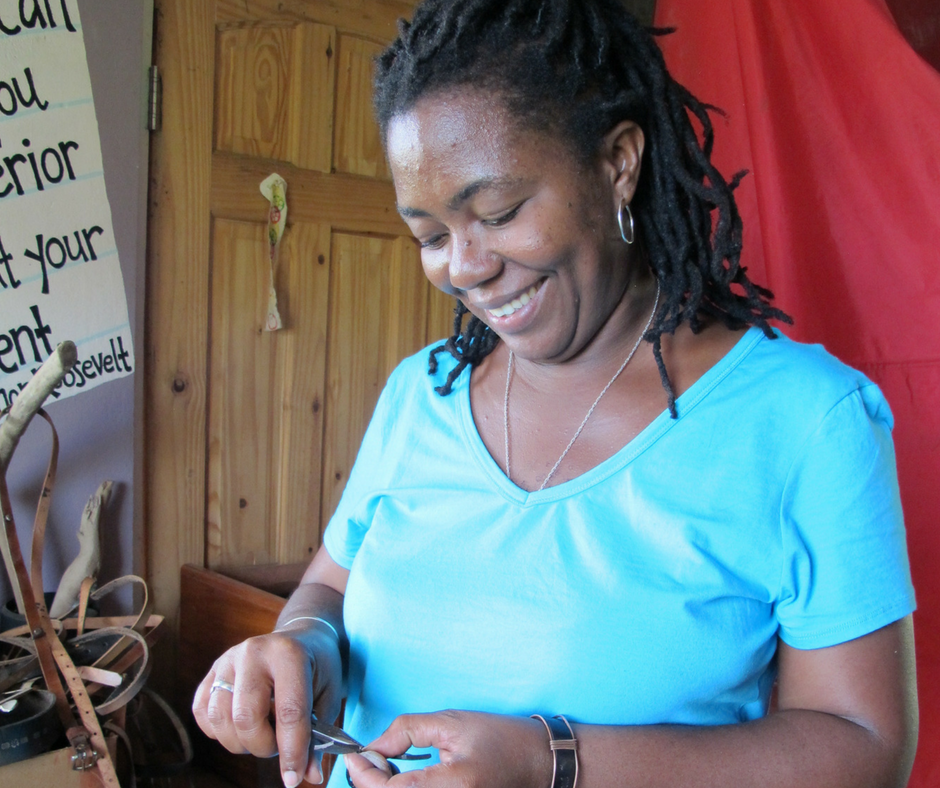The Commonwealth of Dominica is a small Caribbean island nation roughly one quarter the size of Rhode Island with a population half that of Dayton, OH. On Sept. 18, 2017, Dominica was hit by Hurricane Maria, with 160 mph-plus winds and severe rainfall. Thirty-one people were reported dead and another 37 were reported missing. Maria’s wrath triggered severe flooding and landslides. It damaged an estimated 90% of the buildings on the island and suspended routine life for island residents. Thousands were left homeless. Jobs disappeared for adults and schools ceased to function for the children. International Medical Corps was among the first humanitarian agencies to respond to Dominica’ calls for help, establishing programs focused on Health; Water, Sanitation and Hygiene (WASH); and Mental Health and Psychosocial Support (MHPSS).
Among our beneficiaries was a small business owner and mother of four named Vanessa Winston. Vanessa welcomed us to her New Beginning Craft Workshop to share her story –a story that helps underscore why mental health and psychosocial support programs are such a critical component of any humanitarian response to natural disasters.
We first met Vanessa when she attended one of our Psychological First Aid workshops that trained participants how to offer compassionate support–both practical and responsive–to those who have recently gone through an especially distressing event. Vanessa is an artist and small-business owner, someone already active in several local NGO projects that provide vocational training in disadvantaged communities. It was her close ties to a woman within the local NGO community working to rally groups together who could assist those affected by the disaster that she first learned about the workshops and decided to attend.
She founded New Beginning Gifts and Leathers in 2012 with the vision: create and sell jewelry and crafts, while simultaneously training disadvantaged youth and adults in such skills as leather craft and pottery-making. When Hurricane Maria ripped through the Caribbean island, it crushed Vanessa’s shop and destroyed her home built on the floor above. It also disrupted Vanessa’s life in every way.
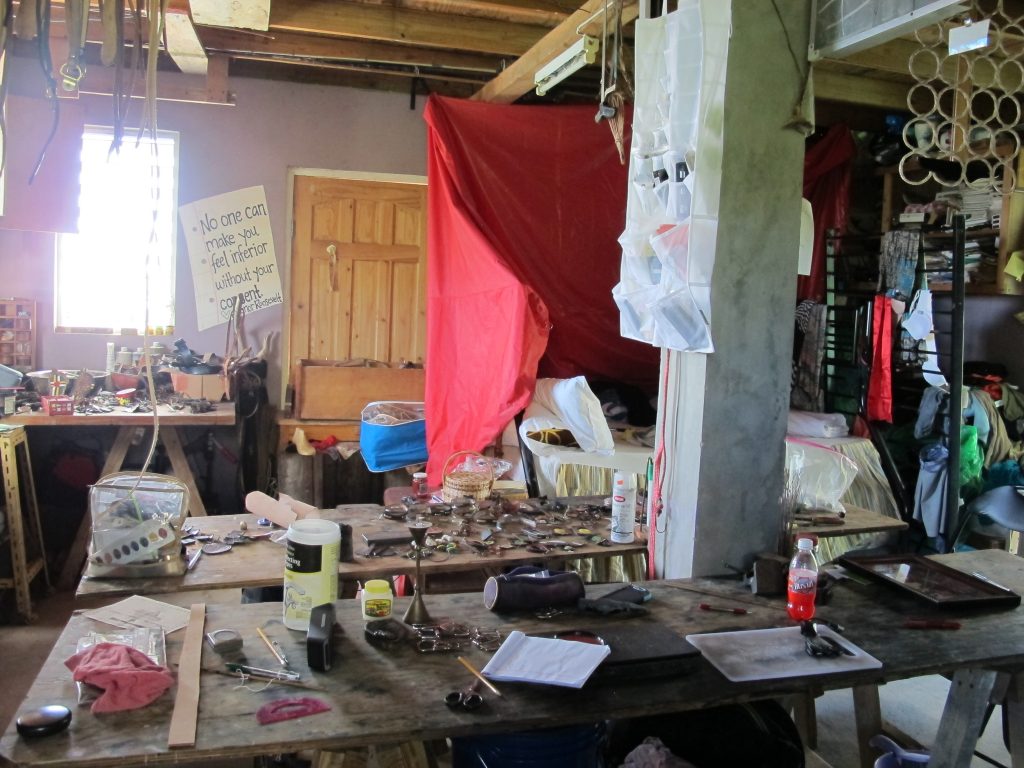
For seven endless hours that harrowing night, Maria’s torrential rains poured through both the windows and the ceiling from the family home above. It drenched the workshop below as Vanessa and her four children tried to stay dry and protect their most important possessions, including books, school uniforms and Vanessa’s craft tools. Then things got worse. As the winds raged, the second story floor above them began to lift. They struggled to keep the front door from being sucked outside. At one point Vanessa tied a chain onto the door so that she could pull against it, but soon realized that she was losing the fight and was in danger of being pulled out with it. She heard the stove from the upstairs kitchen land in the bushes outside, realizing in horror that her home had collapsed above them.
As her children became more and more distressed, Vanessa had to think of increasingly creative ways to try and comfort them; “I was afraid my daughter would lose her mind because of the way she was acting, I had to think quickly to calm her down.” In a moment of maternal brilliance, she turned to her daughter, cell phone in hand and saying “take a selfie with mommy!” Her daughter could not believe that Vanessa was serious, but they smiled and took a photograph, despite the chaos and destruction surrounding them.
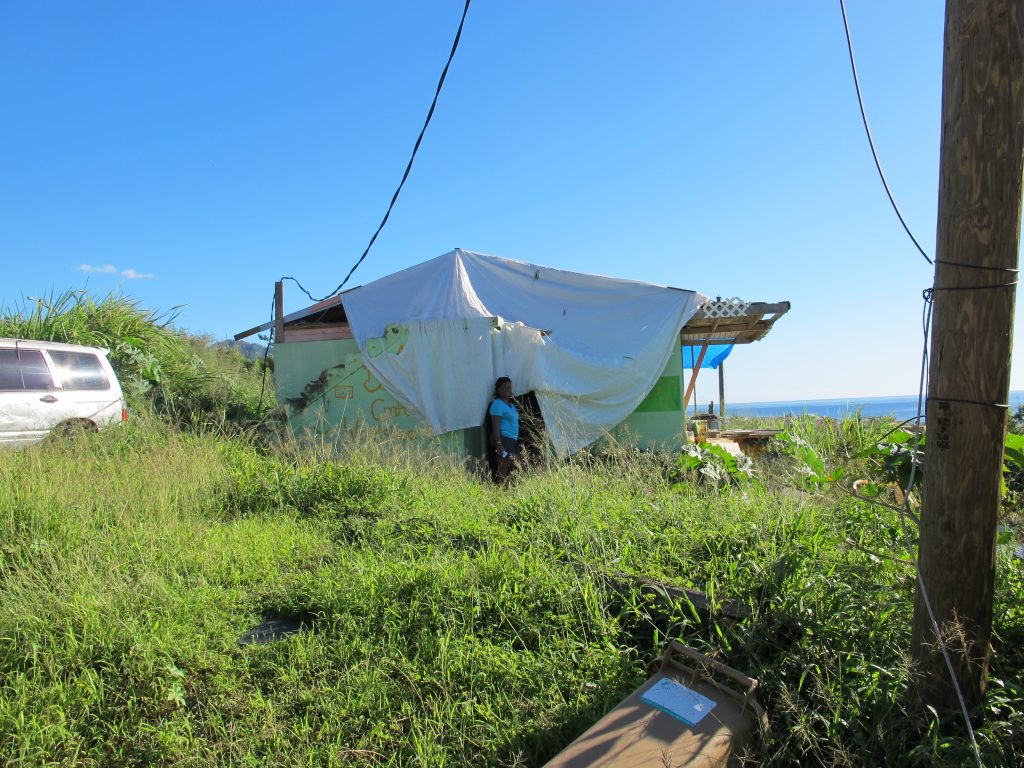
Today, Vanessa looks back with amusement at her desperate attempts to distract the children. But she also remembers the awful feeling of helplessness at being powerless to protect them. With both her house and her livelihood gone during one horrific night, Vanessa felt she had no choice but to send her children to live with family in Barbados. There, they would at least have food and a safe place to live. As with many parents who have ever reached the wrenching decision to send their children away, it is a choice Vanessa still struggles with. She feels her choice was a drastic–yet necessary–step to keep them safe, but the pain of separation and the related feelings of guilt and loneliness have added to the emotional burden she bears months after the disaster itself.
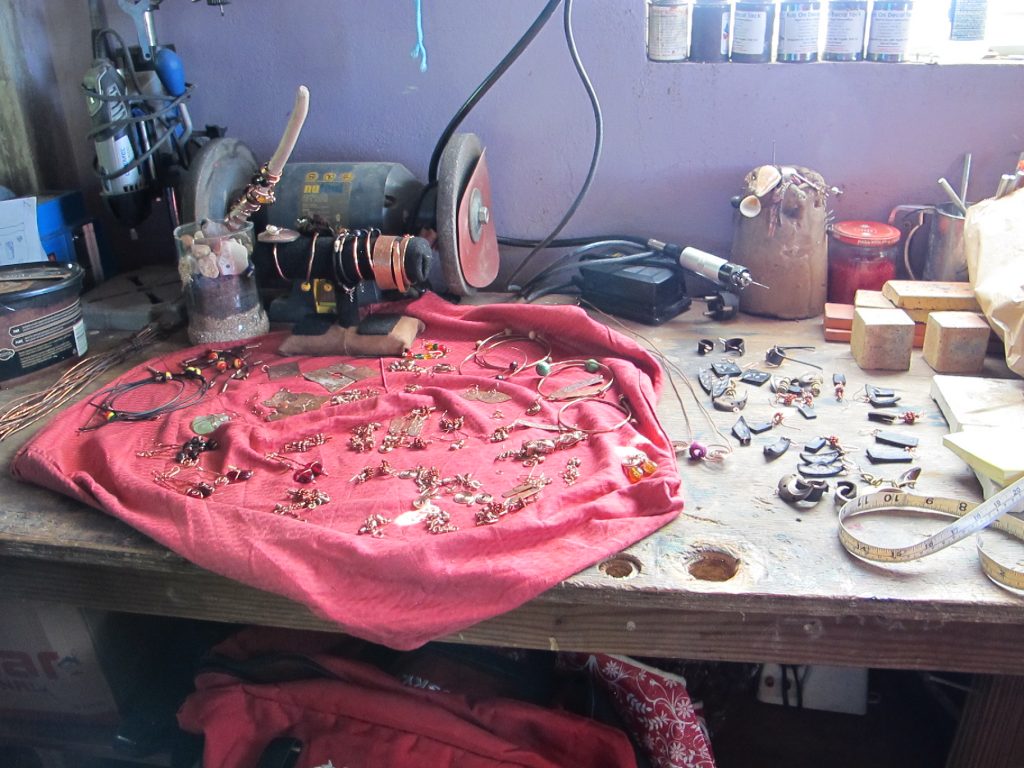
As Dominica slowly recovers from the physical destruction Maria left in its wake, Vanessa emphasizes the storm’s lingering psychological impact. She feels it every day when she watches people become angry, impatient and short-tempered with little understanding why they feel this way.
“The structural damage has been repaired, but the people themselves, they’re still angry, they’re still fearful… lashing out at everybody…,” she said. “Some of them don’t even understand what they are going through. They figure, ‘Oh, my roof is back up and I’m back at work’ … yet they still feel tense, on edge.”
Many of those we spoke to echoed Vanesa’s observations, describing how overwhelming it felt to continue in their caring roles as doctors, nurses, teachers or parents, while feeling so distressed themselves, surrounded by the destruction and chaos left in Maria’s wake. Vanessa described how she still has moments where it seems impossible to go on. At those times, her responsibilities to her children force her to keep going, to keep moving forward.
“Even today, I told a guy, ‘I wish all the trees would just grow up around me, hide the entire building and hide me from everybody else’, “she said. “But then I cannot think of giving up and just hiding myself away because I have four children depending on me.”
For Vanessa, the International Medical Corps Psychological First Aid (PFA) training offered a way to understand the powerful impact disasters can have on mental health as well as physical health, and how recognizing and treating the resulting psychological needs is a vitally important step if communities are going to bounce back and nurture resilience. The training has helped her listen in a supportive way, foster positive coping skills and promote self-care and support.
“It helped me find a better way of understanding people,” she said. “It helped me deal with others in a better way… a better way of trying to comfort people.”
Vanessa said the training enabled her to help her daughter cope with the experience, letting her cry about what happened rather than encouraging her to contain her emotions.
”It’s better she cries it out because it’s affecting her either way,” Vanessa said. “If she cries it out, she lets it go and it’s better to let it go than hold it in.” She recalls offering similar advice to a cousin, noting: “You have to be there to support her, but everybody has a different coping mechanism. If that is her way to cope, then let her do it that way. You have to allow her to find her own way to cope.”
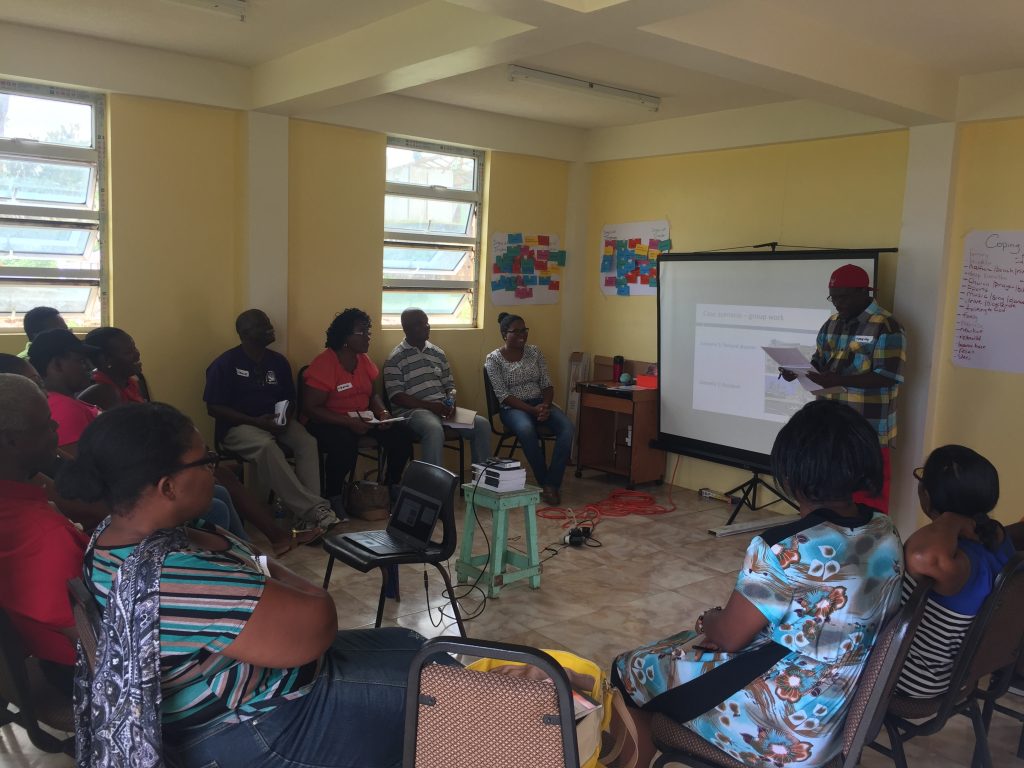
When we asked Vanessa what she wants people to know about the experience her community has been through, she said, “I want them to know and to understand that even amid the rubble and the ravished Dominica, that we could still—we could rise again.”
Vanessa has risen – this spring she travelled to England, where she was hosted at Buckingham Palace to showcase a piece of her artwork and represent her country along with artists from other British Commonwealth nations. While she was initially unsure if she would be able to produce the piece when so many of her supplies had been destroyed, she agreed to try. With water pouring down into her workshop and no electricity, she worked out of a friend’s home in order to create a hand-crafted leather butterfly belt designed to complement a dress designed by a colleague in Trinidad. Vanessa believes her story of resilience and recovery reflects the strength and resolve of her country as a whole– a willingness to find opportunities for creativity and improvement amid the destruction. Many Dominicans are using this year to rebuild their shops, restore their homes, and reunite their families and communities.
“A lot of people say Dominica’s finished, but Dominica is not finished. Now is the time to embrace the opportunities and the creativity we have to rebuild… Now is the perfect opportunity to show off our island because all eyes are on us. Now is time for all people to do their best to show our true resilience in Dominica.”
